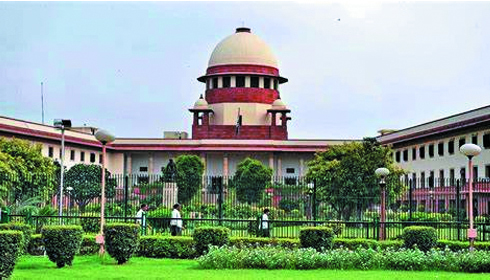
Review Petition Seeks Reconsideration of Supreme Court's Ruling on Doctors' Liability
In a move that could reshape the legal and ethical contours of healthcare in India, a review petition has been filed challenging the Supreme Court’s refusal to reconsider its 1995 judgment in Indian Medical Association v. V.P. Shantha. This landmark ruling, which brought medical professionals under the ambit of the Consumer Protection Act (CPA), 1986 (revised in 2019), has been hailed as a victory for patient rights but criticized by the medical fraternity for its unintended consequences. The petition underscores growing concerns about the judgment’s impact on doctor-patient relationships, the morale of healthcare providers, and the overall stability of India’s healthcare system. As the debate unfolds, it raises a critical question: should medical practice, with its inherent uncertainties and life-or-death stakes, be equated with other consumer services?
The petition, filed by the Medico-Legal Society of India, highlights growing concerns over litigation stress among doctors, arguing that their inclusion under the CPA undermines trust in the doctor-patient relationship. It states: “Looking at every patient as a potential litigant has strained the doctor-patient relationship. If doctors fear litigation and hefty compensation claims, it will dissuade them from taking risks necessary to save lives, leaving society as the ultimate sufferer.”
One of the primary arguments focuses on the complex nature of medical practice, emphasizing that medicine inherently involves life-or-death decision-making under uncertain conditions. Unlike other service providers, doctors cannot guarantee outcomes, as treatment responses vary widely between patients. The petition states: “Doctors cannot promise 100% cures; outcomes vary, ranging from cure to complications or even death.” The unpredictable nature of medical outcomes, it argues, should exempt doctors from the same liability standards as other professionals.
The petition also highlights the adverse impact on healthcare, linking the inclusion of doctors under the CPA to rising litigation pressures. This, it claims, has led many doctors to leave the profession or migrate abroad. The stress of potential lawsuits and hefty compensation claims has contributed to mental health challenges among doctors, with some reportedly succumbing to suicide. The petition warns that this environment risks creating a healthcare crisis, with society as the ultimate sufferer.
Further, the petition alleges a violation of natural justice, pointing to procedural lapses during the case's hearing. It claims that the Medico-Legal Society of India, an intervenor, was denied the opportunity to present its arguments, despite the significant implications of the ruling for the medical community. This exclusion, the petition asserts, undermines the fairness of the judicial process and has resulted in a “gross miscarriage of justice.”
Lastly, the petition questions the Court’s distinction between the legal and medical professions. While the Court excluded legal professionals from the CPA, it chose to uphold the inclusion of doctors, citing differences in professional obligations. The petition disputes this differentiation, arguing that both fields require specialized expertise and unique considerations, making a case for their sui generis nature.
The petition underscores the broader implications of the ruling, stating that the CPA, while designed to protect consumer rights, has fostered an overly litigious environment in healthcare. It questions whether patients dissatisfied with outcomes should always have recourse to courts, given the inherent uncertainties of medical practice. Doctors argue that trust, a cornerstone of healthcare, is being eroded by a climate of fear and suspicion.
The review petition reiterates the urgency to address the “crisis in healthcare delivery”. It appeals for a balanced approach that safeguards patients' rights while protecting doctors from undue litigation. Whether the Supreme Court will reconsider its stance remains to be seen, but the debate raises critical questions about the future of doctor-patient relationships and the integrity of medical practice in India.